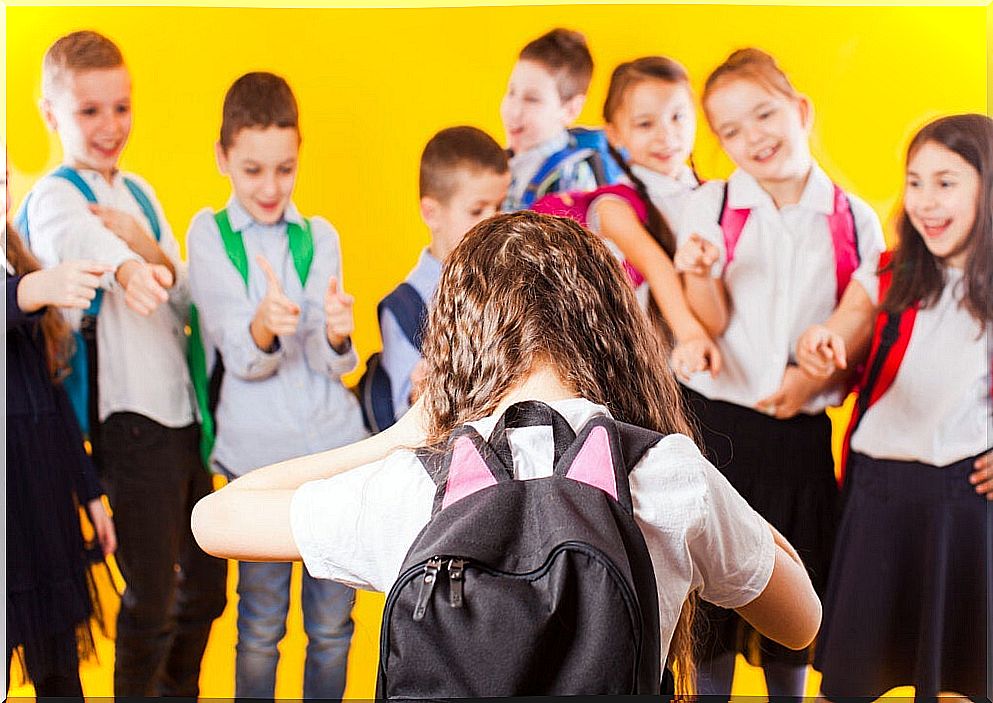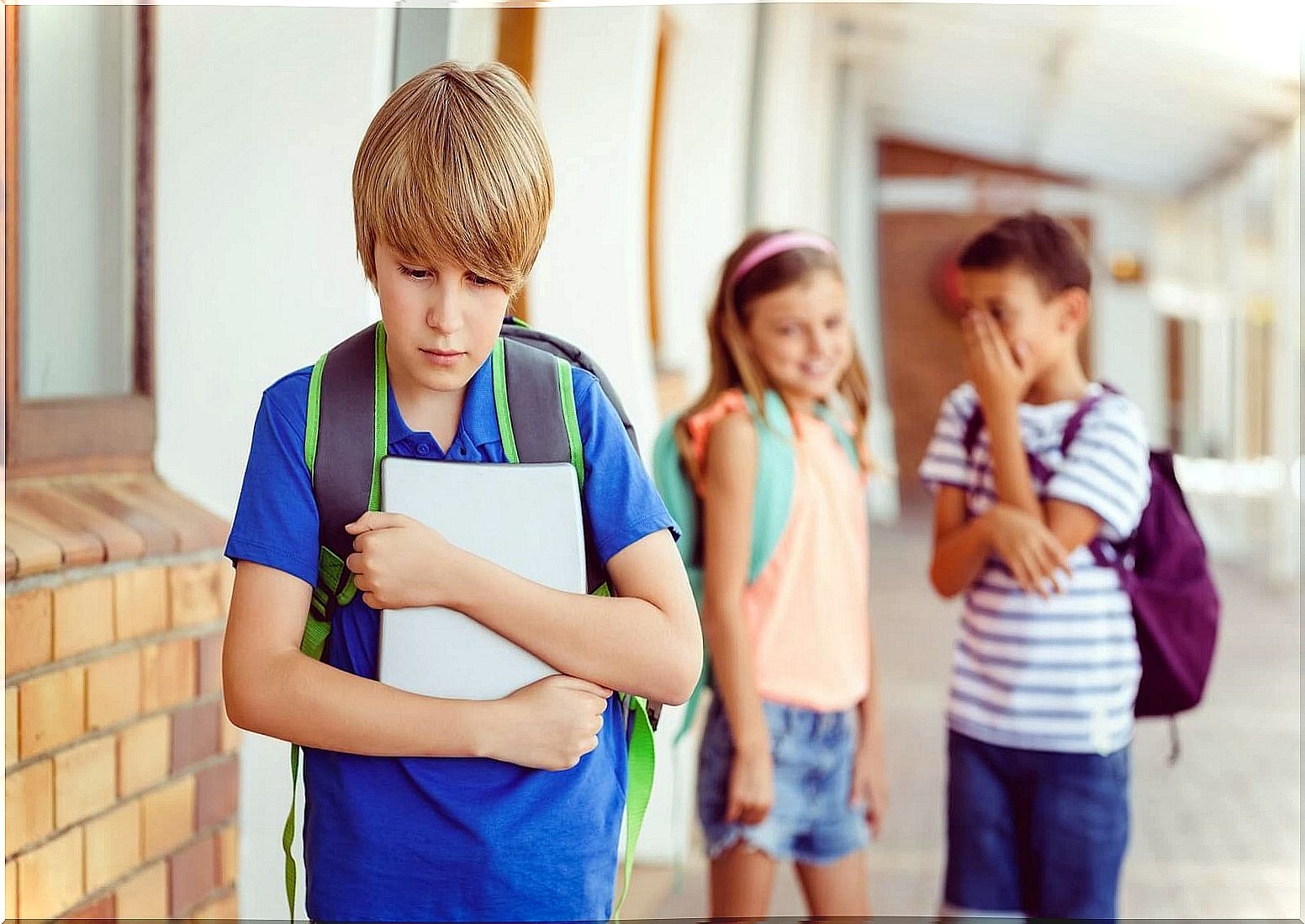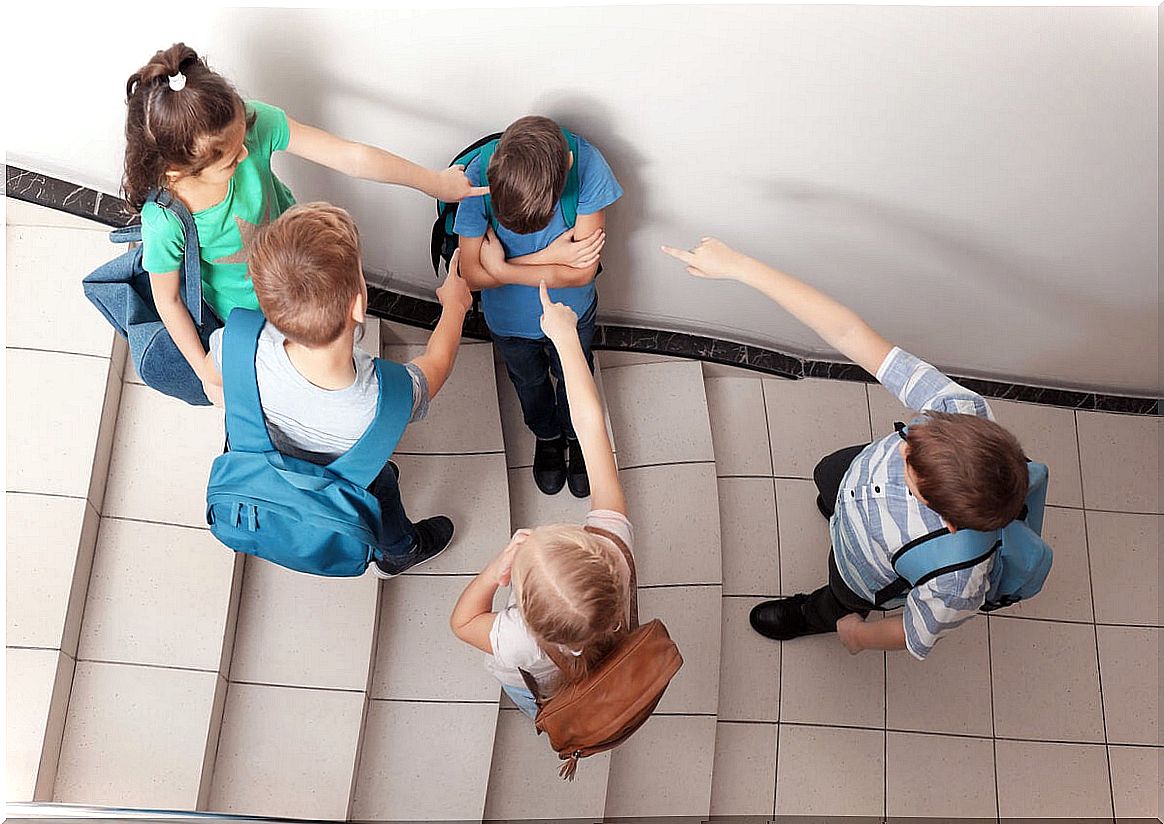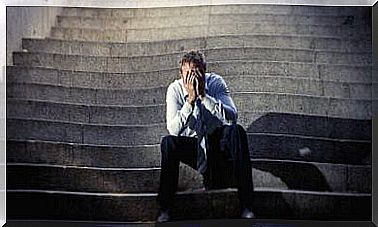Bullying Witnesses: Look, Suffer And Not Act

Bullying is a phenomenon in which the aggressors, the victims, but also those who witness what happens. These witnesses of bullying sometimes don’t agree with what’s happening, sometimes they don’t care, and sometimes they even like the situation. The truth is that, although in many cases they are not considered in the equation, they are also part of the problem, according to studies.
Witnesses are actually a key factor in the bullying phenomenon. Just as in many cases they are the fuel that keeps the fire burning, they can also be decisive in its solution or prevention. Similar to what happens in society, abusive acts gain strength when they enjoy the approval or permissiveness of the surroundings.
What is harmful about the individualistic attitude is that it allows the seed of bullying to take root and grow. Although, in principle, the abuse is directed at another person, it cannot be excluded that in the future it will be redirected to witnesses of the bullying. Therefore, closing your eyes can become a very counterproductive attitude.
witnesses to bullying

Bullying witnesses are those people who know about or witness acts of bullying. In most cases, those who fulfill this role are also affected by the situation and eventually are seen as additional victims.
It is not uncommon for these children or young people to have symptoms similar to those of the direct victim. Fear, anxiety, mood swings and poor academic performance are some of the changes that denounce them. His greatest fear is to occupy the place the victim now occupies.
The problem of bullying is easier to correct when the environment is against bullying. Parents, teachers and children or young people who are unaware of the problem can stop or increase this bullying. The problem is that, most of the time, bullying is kept secret and witnesses collaborate to make it happen.
In many cases, these witnesses of bullying do not speak out because they do not want to be reported to their peers, but also because they do not trust the adults around them enough. How will the rest of peers, parents or the school react when they learn of the problem?
The types of witnesses
The usual reaction in witnesses of bullying is to be scared and feel inhibited to act. However, fear often manifests itself in ways other than conventional ones. This results in different types of behavior.
Witnesses can respond to the situation in a variety of ways, such as the following:
- Actively. Fear drives them to join the aggressors, although in principle they do not agree with them. They join forces to prevent them from becoming victims of abuse.
- In a passive-aggressive way. In this case, they do not participate fully in the abuse, but approve it with laughter or comments that imply their acceptance of what is happening, although deep down they are not convinced of it. They act as reinforcers.
- Observant attitude. It corresponds to those who watch in silence and thereby try to become invisible. In practice, it is an approving behavior, as they are not opposed to what happens.
- Prosocial attitude. It refers to children or young people who face the situation and openly express their disagreement or disapproval. Sometimes they just comment and other times they go further and denounce.
Strengthen witnesses

As is well known, perpetrators of bullying are almost always a minority. Bullies often need an audience to support them because their game is to become power figures and no one can do that without witnesses. Furthermore, the fact that there are spectators reinforces the act of humiliation implicit in bullying.
Witnesses of bullying suffer, in part, the consequences of the abuse, but something worse can also happen: they become indolent – producing a phenomenon in which what is abnormal becomes normal – as a defense mechanism for coping with the situation . This is very negative as it promotes social violence and is a poison to solidarity. It establishes a kind of barbarism in relationships, from which, in the long run, no one comes out unscathed.
Sometimes parents and teachers also become mute witnesses to bullying because they don’t take substantive steps to address the problem. This is even more negative as it sends a message of total approval to what is happening.
While these situations must be corrected, it is also important to avoid them by educating witnesses. They must be very clear about the intensity of suffering the victim may experience. In addition, it is necessary that they know the action protocol when they detect a problem in this regard.








